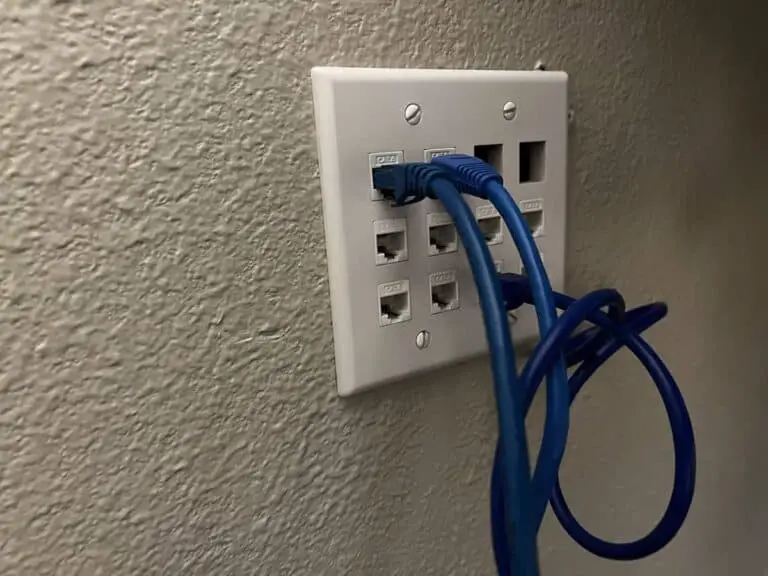College vs. High School Graduation: Similarities and Differences
Graduating high school and graduating from college are both major accomplishments that should be enjoyed and celebrated. They are very similar in many ways, but they are also different.
College graduation is like high school in that it involves a celebration of accomplishments after completing a degree. The ceremony is similar, involving speeches from high-performing students, teachers, and other prominent people. However, they can feel different.
Read on to learn more about how college and high school graduation are similar and different. This article will discuss what it means to graduate from college and whether college life is as stressful as it might seem.

Is College Graduation Like High School?
As far as the ceremony goes, high school graduation and college graduation are very similar. There is a similar procession, and similar kinds of honors are bestowed upon students. Pomp and Circumstance typically play at both.
However, the feeling of college graduation and high school graduation can be very different. For high school students, graduating often means preparing for the challenge of college, technical school, or some other means of further advancing their education.
College graduation is more commonly the door to a new job or professional experience, though not always.
College years are also so formative that high schoolers look to them with a sense of anticipation, making high school graduation full of hopes and dreams for the years ahead.
By the end of college, a student will have developed dramatically, entering a new form of adulthood.
The size of a graduation ceremony depends largely upon the school, but often college graduation is much larger than high school graduation.
Many schools deal with this by creating ceremonies for each department or school within the college, dividing the students so that each can have more time and attention.
High schoolers typically graduate all in one group because there are fewer students to consider.
Additionally, college students typically have stricter requirements for graduation than high school students.
While this does not change the nature of the ceremony, this might change the way that certain students feel about it.
Things To Know About the Graduation Ceremony
Whether you’re graduating from high school or college, you can expect the following things to be a part of your commencement experience:
- Many speakers will contribute to the ceremony. Most ceremonies include a speech from at least one student, plus speeches from well-known alumni or guests. Faculty will also often contribute to the procession, presenting awards or congratulating people with honors where necessary.
- The event will be formal. Very few graduations are casual. Whether you’re getting a bachelor’s degree or a diploma, you can expect that the participants and audience will both be dressed up and respectful of the proceedings.
- The crowd will be big. Remember that every graduate typically invites several family members and friends to the graduation, so the event will be big, even if the school is not.
- Expect to feel emotional. Graduation is a big day, whether it’s you or someone you know who’s graduating. Expect that you’ll feel emotional as you take this next step towards your future goals.
- Check to see whether cameras are allowed. Some schools prefer that graduates’ families do not bring their recording equipment to the ceremony, so be sure that you check before you bring and use your own.
Sources: King’s College and Saint Leo University
Why Is Graduation Called Commencement?
Graduation is called commencement because it is also the start of life beyond school (high school or college). Graduation and commencement are interchangeable synonyms, referring to the ceremony that celebrates the completion of a degree or degrees.
Is College Graduation Called Commencement?
Yes, college graduation is called commencement. The root of the word is Latin for “beginning.” It’s been used since the early days of English to refer to a beginning or beginnings.
Is High School Graduation Called Commencement?
High school graduation, like college graduation, can be referred to as commencement. In this case, it refers to the beginning of life after high school, often the beginning of a university career.
Regardless of what the student plans to pursue after finishing high school, the culmination of the degree and graduation can still be called the commencement.
Source: StateUniversity.com
Is College More Stressful Than Work?
For many, college is more stressful than work for many reasons. College requires committing to several classes at once, each with its demands upon your time and attention. Classes require time in the lecture hall or lab and time spent on your own, reading, learning, and practicing course materials.
While some jobs are also extremely stressful and high-pressured, most people find that their jobs are more straightforward than college and therefore easier to handle.
In college, you learn a range of things so that you’re prepared to enter numerous different fields or professions, whereas at work, you’ve narrowed down your work content to a specialty.
College typically means longer hours and more busy work than a full-time job.
Additionally, work pays for you to complete tasks, whereas, in college, you’re paying them. Working in your career can be satisfying for this reason, because you’re bringing in more money the more that you advance and contribute.
In college, most students are accumulating the same amount of debt no matter how hard they work.
College students also often have to work while in school to cover the costs of living, which adds another layer of stress to the experience. If college students were allowed to focus just on course work and were compensated for their time and energy spent, they might find the experience more doable.
Is College the Most Stressful Time of Life?
The American Psychiatric Association (APA) has flagged college students as a high-risk group for depression, anxiety, eating disorders, and substance abuse. This is due to heavy demands upon the psyche and pressures of a university curriculum.
College students also have a notoriously difficult relationship with alcohol, as many students are in the early years of being able to purchase alcohol and tend to abuse it rather than drinking it wisely. This compounds the stressors and mental health difficulties that students have and makes it even more difficult for them to stay afloat.
Whether college is truly the most stressful time of life depends greatly on the individual. Some students thrive in the college setting, using the pressure to perform better. Others struggle.
Plus, some students enter rigorous career fields after graduating, while others choose a less stressful route; this, too, makes a difference to whether college is the most stressful time of life.
For example, students who decide to enter medical school or law school may find their postgraduate experience even more stressful than their undergraduate experience.
Most Stressful College Majors
The following are some of the most stressful college majors that you’ll find:
- Fine Arts: This is a challenging major for students partly because of the heavy workload and study time expected each week and partly due to the poor job growth outlook in the field. Students in the fine arts are working hard without the promise that they’ll continue into a relevant full-time job.
- Nursing: This is a challenging major because it involves stressful practical work and a heavy workload. It takes a lot of grit and a huge investment of time.
- Theoretical and Experimental Physics: This involves difficult work and requires that students understand a broad range of different scientific theories in depth. Physics is especially challenging if you don’t have a strong background in mathematics.
- Philosophy: This is a stressful major for students because it involves heavy reading and examination and a need for theoretical logic. Plus, it’s very difficult to find work in the field of philosophy, so students study with the knowledge that they’ll likely need postgraduate education to make it in the field.
- Architecture: This has some of the most intense required study time of any college major. Students should be prepared to devote as much as 22 hours per week studying as an architecture major.
- Molecular Biology: This requires lots of laboratory work, and students need to be prepared to study long hours. Plus, a bachelor’s degree alone in molecular biology is not typically enough to find work in the field.
- Electrical Engineering: This is stressful because it includes difficult laboratory work and frequent tests. Students must be prepared to study hard; however, this major does have the benefit of leading to many lucrative career options.
- Chemical Engineering: This is like electrical engineering in that it takes hard work and difficult courses and leads to numerous career options. Students can expect to spend as many as 24 hours each week studying for a chemical engineering major.
Source – Own Your Own Future
How To Make College Less Stressful
There are numerous ways to make college less stressful for students.
For one, students can be careful about their use of alcohol and other substances. These might seem like a way to take the edge off, part of the “work hard, play hard” mentality, but they make it more difficult to expend the energy and time needed to complete a degree successfully.
Alcohol also worsens depression and anxiety, so struggling students may suffer even more if they choose to drink heavily. This often has a negative impact on the perceived stressfulness of a college experience.
Taking care of yourself through mindfulness and exercise is also key to performing better in college and dealing with stress.
Taking the time to do mindfulness exercises and move your body might seem counterintuitive when you’re cramming for finals or trying to finish all your work. Still, it will also boost your productivity and keep you from becoming burned out.
Creative outlets are also essential to a better college experience. Those who read poetry, play instruments, paint, or otherwise express themselves regularly tend to be less stressed during college.
Keeping in touch with supportive people is also a good way to reduce college stress, whether it be parents, friends, or a therapist. These people can help you process the difficulties of day-to-day college life and make it easier to cope.
Talking to people who have been through college helps you get a feel for what good coping mechanisms might be, and talking to people who have your best interests in mind can help you reprioritize when necessary.
No grade is worth sacrificing your health or well-being. Remember that learning takes time, and be patient and compassionate with yourself as you go through the process. Allow yourself the permission to express your feelings, no matter how stressed you are, and you’ll find that taking care of yourself will become easier.
Developing these habits will make it easier for you to reduce stress in your working life after college, too. For this reason and others, you might find work less stressful than college; while you’re in college, you’re still learning to deal with a heavy workload. Later on, you’ll have practice and know-how to manage yourself well.
Final Thoughts
College and high school graduation are both major accomplishments. Both celebrate the completion of one body of work and the beginning of another, and both can be referred to as commencement. However, they can feel quite different depending on what the student plans to do after graduating, whether they enter the workforce or pursue more education.







